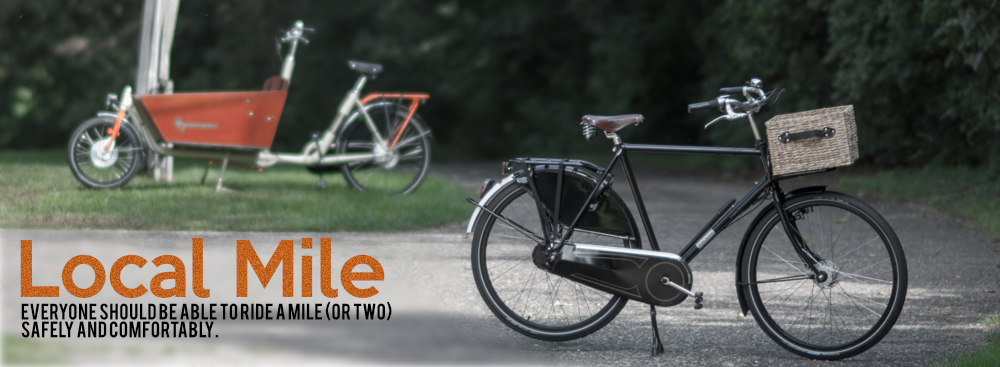This is a work in progress. I will continue to add to this and make corrections as I have time.
The focus on wearing helmets has, in my opinion, been quite detrimental—to our health, safety, and environment. It has taken the focus off of far more important safety measures such as building safe protected bikeways and it has discouraged people from riding which is far more detrimental to our health than any harm from not wearing a helmet.
——
There has been some controversy over my recent comments about wearing or not wearing bicycle helmets. Here are a few very quick (or not so) points on this.
Firstly, I do not encourage people to not wear bicycle helmets. However, people should know the realities of bicycle helmet effectiveness. They should know that it is OK and safe to ride without a helmet. And especially to do so rather than choose not to ride because they don’t have a helmet, can’t find it, or simply don’t want to wear it.
People should have the freedom to ride a bicycle without being berated for whichever they choose. As we’ll see, both are quite logical choices, and whichever someone chooses likely makes little difference beyond personal preference and fashion.
Our intuition tells us that foam bicycle helmets should be effective in preventing traumatic brain injury (TBI), the reason that we are told to wear them. In reality this has not shown to be the case.
Three Big Grains Of Salt

We are often told to take something we hear with a few grains of salt. Wise advice. Here are a three grains of salt for bicycle helmets.
1 – Bicycle riders in The Netherlands, Denmark, and elsewhere do not wear helmets. And yet, with all of their bicycle riding, they do not have higher rates of Traumatic Brain Injury (TBI). In fact, they live longer and healthier lives than we do.
2 – Of the studies of population-wide increases in helmet use, none that I am aware of have shown a corresponding causal decrease in rates of TBI. They consistently show no statistically significant change[1].
3 – Head injuries as a percent of all bicycle injuries are the same in The Netherlands (32% of all injuries) with zero helmet use as in the U.S. (33%) with high helmet use. Minnesota, with very high helmet use, has an even higher rate of 37%.
If bicycle helmets were effective then these should not be. Everything we hear in the U.S. tells us that The Netherlands, Denmark, and similar helmetless countries should have massive numbers of head injuries and fatalities or that if people start wearing helmets fatalities will decrease. Yet neither of these has proven true.
The big smoking gun though is #3 because that takes all other factors, such as Europe’s safer roads and drivers, out of the equation. It looks only at helmet effectiveness and indicates that helmets have no overall affect on reducing brain injury.
Now, let’s look a bit more in depth.
Two Explanations to Consider
Certainly one conclusion is that bicycle helmets are simply not effective in preventing head injuries. There are though two others that we should consider first.
First is that the helmet wearers in these studies (people in Australia, Canada, and the U.S.) were not wearing them correctly and thus did not benefit from wearing them. There would seem to be considerable truth to this as not wearing a helmet correctly does negate it’s benefits and, anecdotally, the vast majority of people I see wearing bicycle helmets in the U.S. are wearing helmets that are too big, with too loose of a strap, or pushed back on their head.
The second bit of explanation is that people in The Netherlands, Denmark, and Sweden are better bicycle riders than we are and have better and safer infrastructure. There is considerable truth to this and does explain the much lower overall injury and fatality rates for these countries but does not explain why they have the same rate of TBI as we do.
Together these do explain some of why we’ve not seen a decrease in TBI with higher helmet use, but likely not close to all. These also point out a couple of critical issues; if people will not wear helmets correctly, is there a point in pushing helmet use? And, if better infrastructure will have a such a greater impact on lives saved, should we focus on that instead?
That latter point is interesting because that is a key reason that we are two to four times as likely to be killed by someone driving a car as someone in Europe is. They’ve focused on preventing crashes, particularly crashes involving pedestrians and bicycles. We’ve focused on moving motorized traffic as far and fast as possible and then tell pedestrians and people riding bicycles that they need to wear hi-viz clothes and helmets to survive in this brave fast world.
There are three elements that we need to consider next. First, are helmets effective at preventing TBI. Second, how often are we likely to ever actually need a helmet. And third, can helmets actually be harmful.
Coming up soon…
Why I Don’t Wear A Helmet
I did for a number of years. And still have a bunch of them.
However, I often found helmets a pain for normal everyday riding, like a quick trip to the store or dinner. I’m not known for always putting stuff where it goes so it wasn’t unusual for me to not be able to find my helmet when I wanted to ride somewhere. I’d often then end up driving instead.
I never found comfort to be a highlight of helmet wearing and it would sometimes leave my hair sweaty when I arrived where I was going. I’m also not known for spending any time styling my hair so any impact on my hair style either wasn’t an issue or maybe even an improvement. I found ski caps much warner and comfortable in the winter and either nothing or a baseball cap more comfortable in the summer. Then there was what to do with it at my destination. Do I leave it hanging on my bike for someone to steal? Carry it around with me?
I never even considered not wearing a helmet until one day it occurred to me that all of the bicyclists I saw in Europe never wore helmets. Were they just that far behind the times? This led to a bit of research that surprised me with there being any doubt about the effectiveness of helmets. More research indicated that effectiveness was at best inconclusive and that more than likely any benefit was quite miniscule.
(This also gets to why I said earlier that both choices, to wear a helmet or not wear a helmet, are rational and logical. Most people in the U.S. hear nothing but that helmets are critical to safety and that we should always wear them when riding a bicycle. So, many people, logically, wear a helmet. I don’t blame them.)
On the other hand, a bit of research indicates that helmets are likely not very beneficial and are, more often than not, harmful to our overall health if they contribute at all to our not riding. These people, logically, often choose not to wear helmets.
For me, unless I was also going to start wearing a helmet every time I walked somewhere or got in a car the benefits weren’t there.
To Be Continued…
